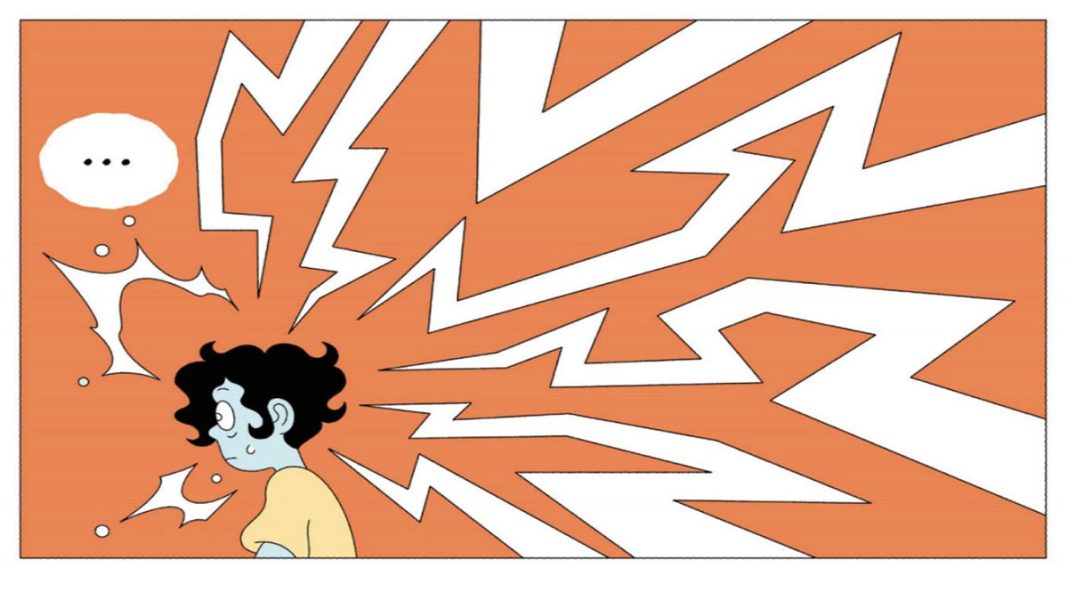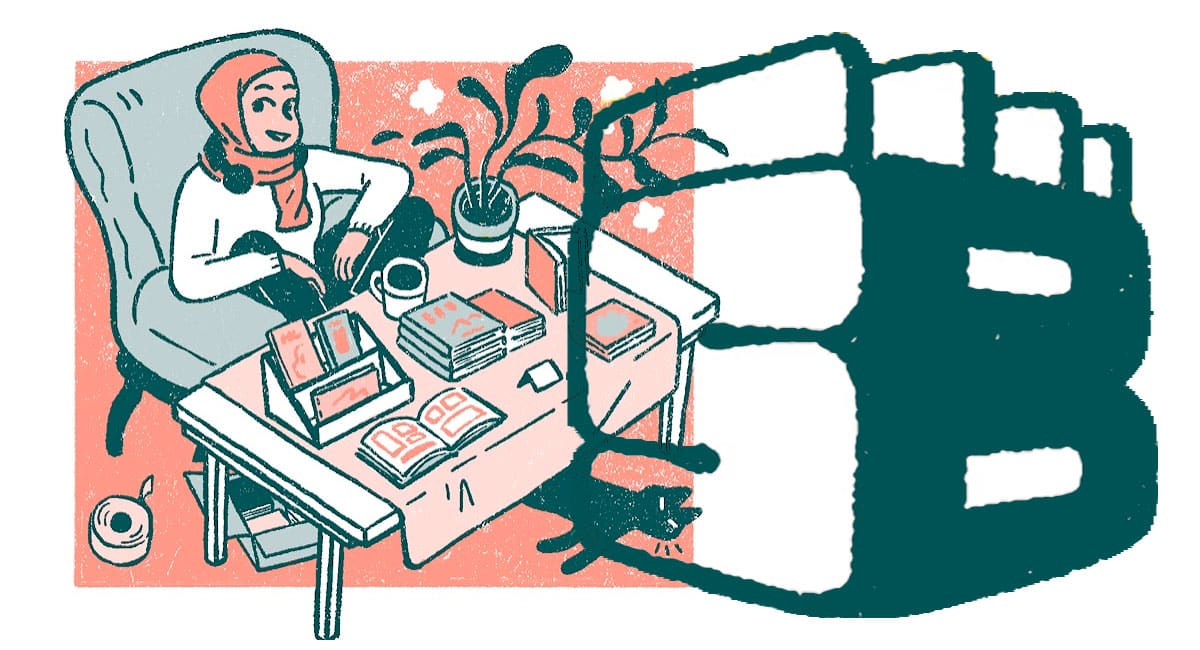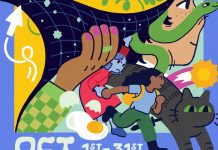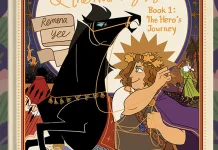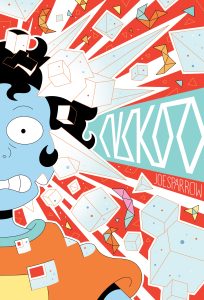
Written and illustrated by Joe Sparrow.
Published by ShortBox.
Is this even a comic book? The answer is an unequivocal yes. Joe Sparrow’s graphic novel, Cuckoo, has panels and page turn reveals and even superpowers. But rather than a superhero comic, this is a sci fi story. An alien transformation story, which feels a bit more like a late golden age pulp paperback than a comic book. Actually, it feels like a cartoon put into a book. The pacing puts you so into the moment, the story on the page unfolds in real time. Maybe Cuckoo is a novel from the school library. Most of your time is spent with a couple of young people, what they’re going through. Not even a serial book. Just some lives that exist solely between two covers.
A casual, multi-genre story about a kid who is in art school, burning out. It might be the pressure to create art that isn’t inspiring. Or the mess at home. Or a childhood encounter she had with an alien meteorite. Something’s up. Dorothy Weaver is trying to figure out her life, her first close friendship, her newly emerging cosmic superpowers, all while struggling with anxiety. What good are alien abilities, even?? In a messed up world, what’s the point?
The point is extra fine and its use is formidable. Sparrow’s artwork uses some of the thinnest lines I’ve ever seen. But there’s no fragility to his drawing, the marks aren’t delicate, it’s constructing precisely defined space. The characters in Cuckoo are full of their own vivacity and motion, but also very flat. Sparrow’s drawing has an indie sketchbook feel underneath the clean geometric finish of the final art.
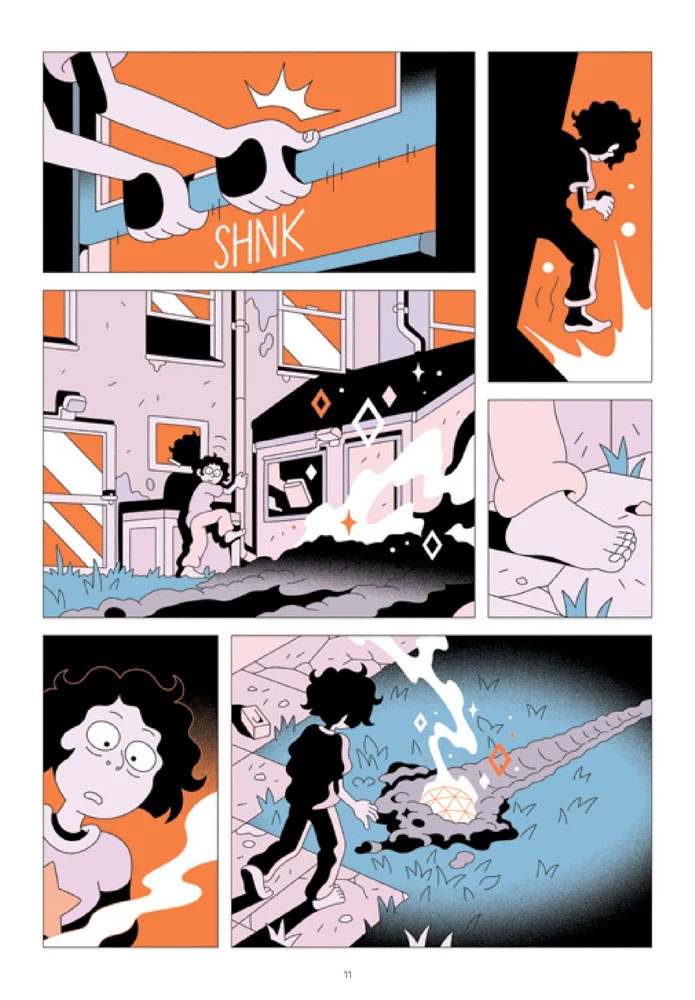
Though! The casual trigonometry of the art is a great touch. A lot of cartoonists who are focused on precision and shape and a seamless finish end up with art that feels locked in place. The magic rock in this book and the alien abilities it bestows are polyhedral. Everything ends up looking like D&D dice and building blocks, or when magnetic filings make snowflakes from radio waves. Yet Sparrow’s shapes are all beautifully flawed. They feel drawn by hand. Their degree of realness suits the world of the comic.
The pacing doesn’t really feel like comics- which I also thought was cool. Sparrow time gives every detail its own panel, so that the beats come like a movie sequence. Sparrow’s heartbreaking POV deep-time exploration of consciousness, Homunculus, also has filmic pacing. Though I hadn’t realized that’s what it was until Cuckoo’s approach made me see his deft editing in that light. The feel in general is new wave cinema, only partially because the pacing is different. The story wanders into genre fiction from slice-of-life and then back again in a way that puts Dorothy before the story. It reminds me of the Scottish indie drama Ratcatcher. There’s a clear start and finish, but much of the middle is being there.
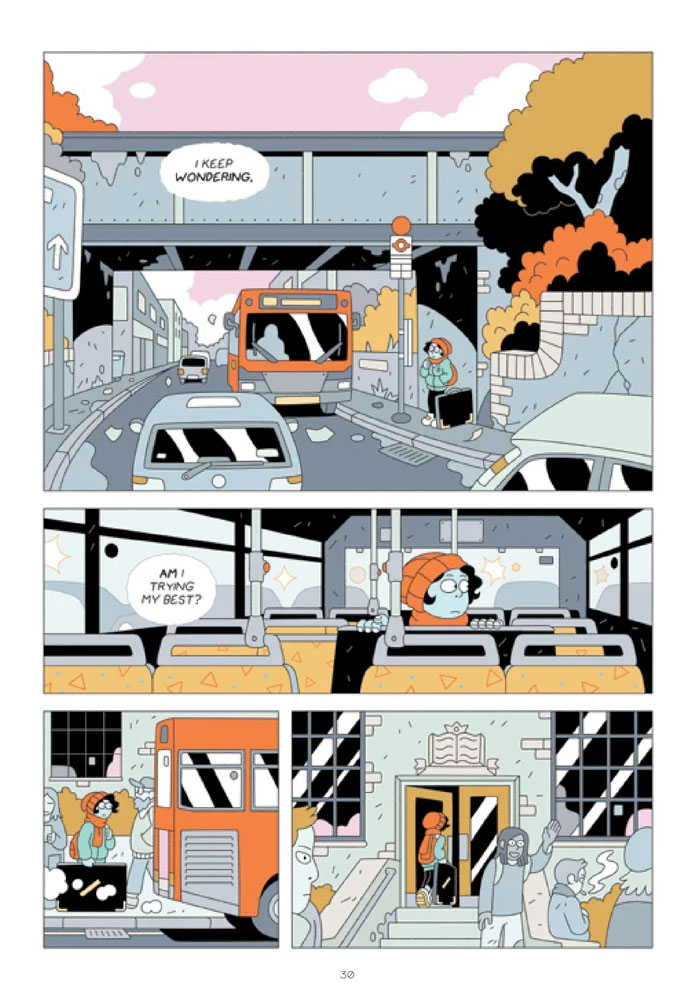
Finishing Cuckoo will change its shape, the subsequent read will be locked into contrast with the one before it. A busy book. It hits on superhero spectacle, too. A moment of catharsis comes from flying up to the moon, letting out a deep breath, and looking up to contemplate the blue marble. You forget about literary theory for a second when comics pull off that kind of stuff.
Cuckoo is Dorothy Weaver’s identity crisis. There are aliens, psychic abilities and powers that defy physics, even her imposter syndrome. They all seem like strong candidates for the cause. The truth is the mental blasts that turn dinosaurs into conic sections aren’t the relatable part of Cuckoo. It’s more existential crisis, where you can see an image of what you would like to be, but are incapable of staying still for long enough to match the pose in the picture. Accidents and mistakes cause change, but all life is growth and development. Dorothy is so trapped by the idea of the thing she should be, she’s forgotten that being demands constant change.
Cuckoo is available from ShortBox or wherever finer books and comics are sold.


